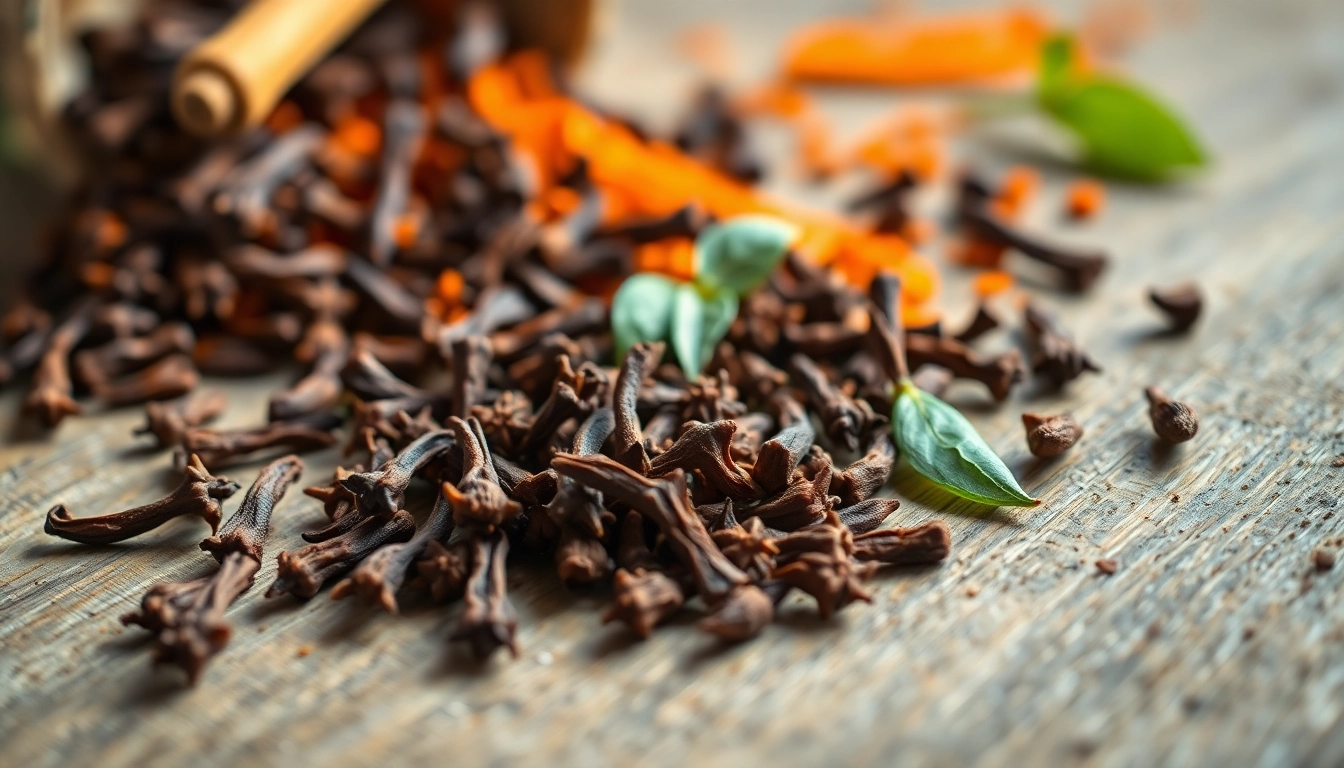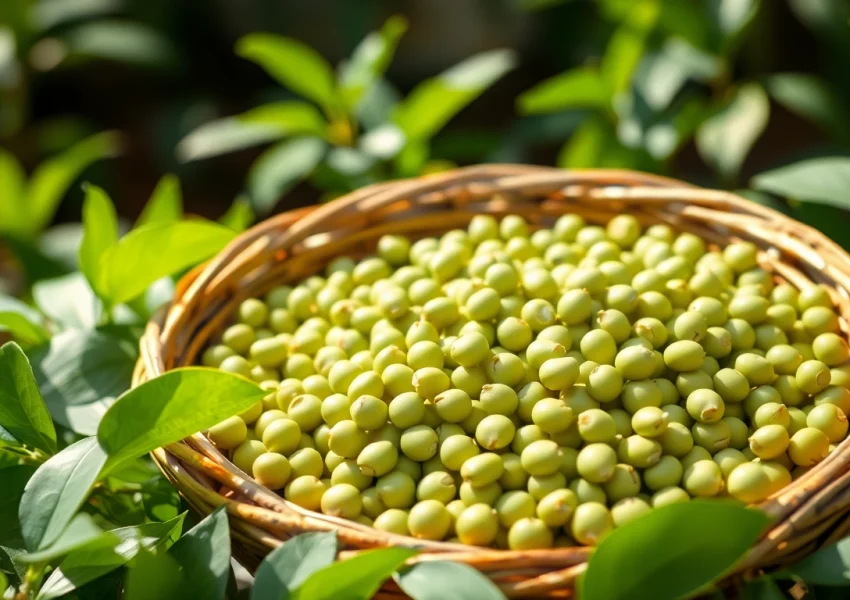Understanding Cloves: An Overview
Cloves are the aromatic flower buds of Syzygium aromaticum, a tree belonging to the Myrtaceae family. Native to the Moluccas, or Maluku Islands, in Indonesia, cloves are widely recognized for their distinctive flavor and pungent aroma. Renowned not only for culinary applications, but also for their medicinal properties, these dried flower buds have earned their place in kitchens and medicine cabinets around the world. This article delves into the many facets of cloves, exploring their origin, health benefits, culinary uses, role in traditional medicine, and where to find high-quality cloves.
The Origin and Botanical Background of Cloves
Cloves trace their history back over 2,000 years, primarily in the Spice Islands of Indonesia. The clove tree can reach heights of up to 8-12 meters and produces flower buds that turn from green to red as they mature. Once harvested and dried, these buds develop the dark brown color we associate with cloves today. Cultivation of cloves spread across various regions, including Zanzibar, Sri Lanka, and even parts of the United States. Their significance was such that they played a centerpiece role in trade between Europe and Asia, making them highly sought after.
Health Benefits of Cloves for Wellness
Cloves are not just a flavorful addition to dishes but also pack a significant health punch. Endowed with numerous nutrients, they are rich in vitamins and minerals, including vitamin C, manganese, and antioxidants. This allows cloves to play a vital role in supporting overall health. Moreover, studies have shown that cloves possess anti-inflammatory, antimicrobial, and antioxidant properties, making them a valuable ally in promoting wellness.
Health Benefits of Cloves
Nutritional Profile: What Makes Cloves Healthy?
The nutritional composition of cloves is impressive. Just a single teaspoon of ground cloves offers 7 calories and includes significant amounts of essential nutrients and fiber. They are an excellent source of manganese, a vital mineral needed for metabolism, bone formation, and antioxidant defense. Furthermore, cloves contain trace amounts of calcium, magnesium, and vitamin K, all contributing toward improved health.
Antioxidants and Their Role in Health
Cloves are rich in antioxidants, which are compounds that fight free radicals and reduce oxidative stress in the body. One of the key components of cloves is eugenol, which is known for its powerful antioxidant properties. This not only helps combat chronic diseases but also supports skin health and reduces inflammation, making cloves an essential inclusion in a healthy diet. A comprehensive review published in the Healthline highlights many surprising health benefits of cloves.
Medicinal Uses of Clove Oil
Clove oil, derived from clove buds, offers numerous health benefits. Traditionally, it has been applied to treat dental pain, thanks to its analgesic properties. Additionally, clove oil may aid in relieving respiratory conditions, improve liver health, and even boost immune function. However, it’s essential to use clove oil with caution and consult a healthcare provider when considering it for medicinal purposes.
Cooking with Cloves: Tips and Techniques
How to Incorporate Cloves into Your Recipes
Incorporating cloves into your cooking can be done in various ways. Whole cloves are excellent for steeping in liquids such as sauces, soups, or teas, imparting a subtle yet rich flavor. Ground cloves are commonly used in spice blends, and holiday baking, where they complement the flavors of nuts, chocolate, and sweet spices like cinnamon. Always remember that cloves can be potent, so start with small amounts and adjust according to your taste.
Pairing Cloves with Other Ingredients
Cloves pair wonderfully with a variety of ingredients. They complement the sweetness of fruits like apples and pears, harmonize beautifully with savory meats including pork and duck, and enhance warm beverages such as chai and mulled wine. When working with cloves, consider balancing their intense flavor with milder spices or ingredients to achieve the right taste profile.
Popular Dishes That Use Cloves
Cloves feature prominently in many global cuisines. In Indian cooking, they often appear in spice blends for curries and biryani. The Middle Eastern cuisine includes them in stews and rice dishes, while in Western cooking, cloves are indispensable in holiday favorites such as gingerbread cookies and spiced ham. Their flavor adds depth and a warming essence that transforms ordinary dishes into delightful experiences.
Cloves in Traditional Medicine
Historical Uses of Cloves in Various Cultures
For centuries, cloves have been utilized as a traditional remedy in various cultures. In ancient Chinese medicine, they were employed for their antimicrobial properties and to promote digestion. They were also known in Ayurvedic practices in India for their warming qualities, believed to stimulate circulation and reduce dental pain. Indigenous cultures throughout the world recognized cloves’ value, using them not only for flavor but also as an alternative medicine.
Modern Applications in Herbal Medicine
In contemporary herbal medicine, cloves continue to hold significance. Practitioners often recommend them for digestive issues, as cloves can help alleviate gas and bloating. Moreover, the application of clove oil in dental care is gaining popularity, with more people seeking natural alternatives for toothache relief. The essential oil’s antifungal and antibacterial qualities make it an attractive option for many health-conscious individuals.
Safety and Precautions When Using Cloves
Despite their many benefits, cloves must be used cautiously, especially in concentrated forms like clove oil. High doses can lead to adverse effects, and individuals with bleeding disorders should avoid them due to the risk of slowing blood clotting. Pregnant women and those undergoing surgery should consult healthcare professionals before incorporating significant amounts of cloves into their diets or health regimens.
Where to Buy High-Quality Cloves
Types of Cloves Available on the Market
There are primarily two types of cloves available for culinary use: Indonesian cloves (often referred to as Clove Buds) and Ceylon cloves. Indonesian cloves are known for their strong flavor and aroma, while Ceylon cloves offer a milder yet complex taste. When purchasing cloves, it is recommended to choose the type that suits your cooking style and preferences.
Evaluating Quality and Freshness
To ensure you’re getting the best quality, assess the freshness of cloves by checking their aroma—high-quality cloves should have a strong, pleasant scent. Whole cloves can be kept indefinitely in a sealed container away from light, while ground cloves lose potency over time. It’s best to buy whole cloves and grind them as needed for optimal flavor and freshness.
Best Suppliers and Brands for Cloves
Many reputable suppliers offer high-quality cloves. Popular brands include McCormick and Simply Organic, which prioritize sourcing their spices ethically and sustainably. When selecting a supplier, consider customer reviews and ratings to ensure consistent quality and authenticity.






